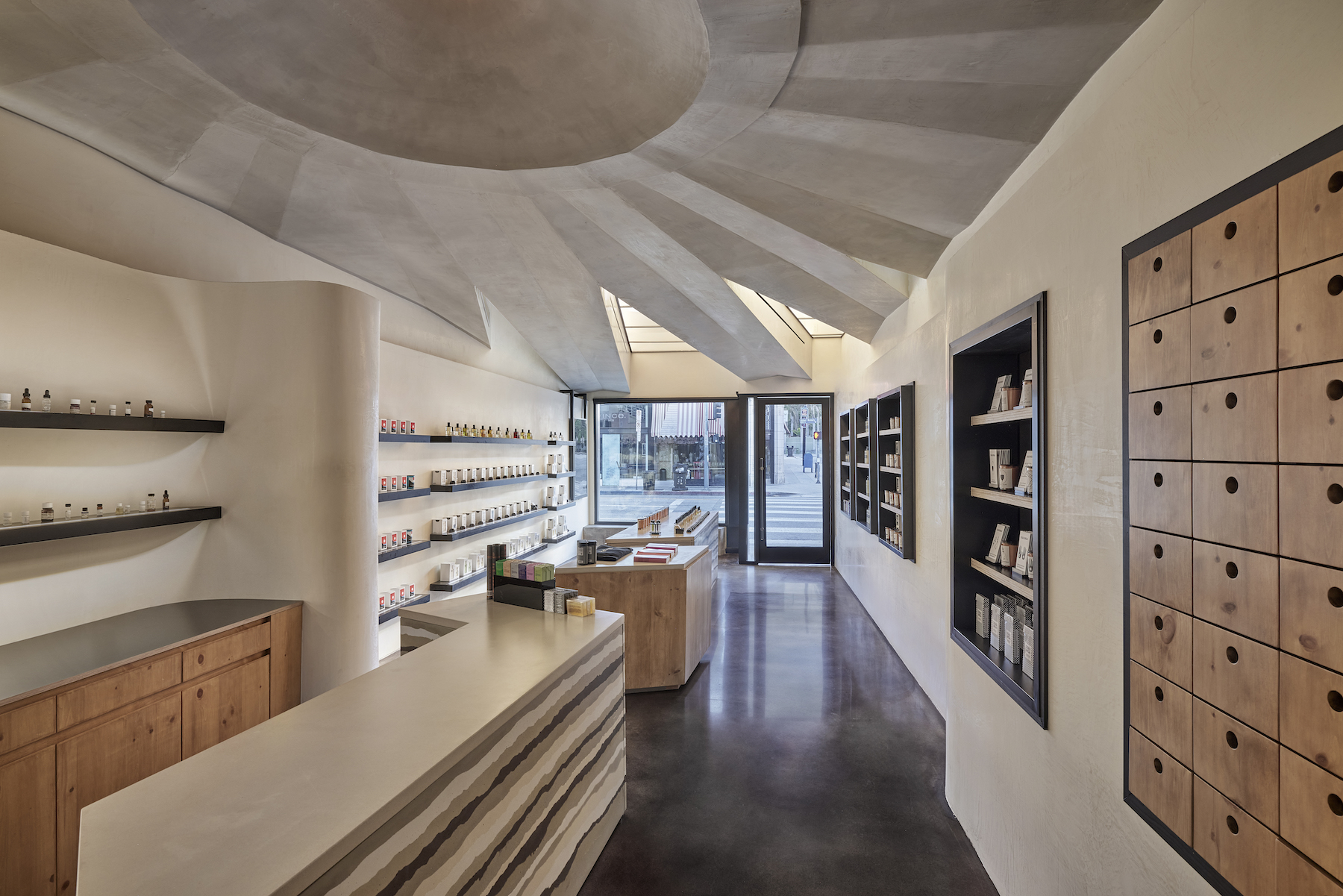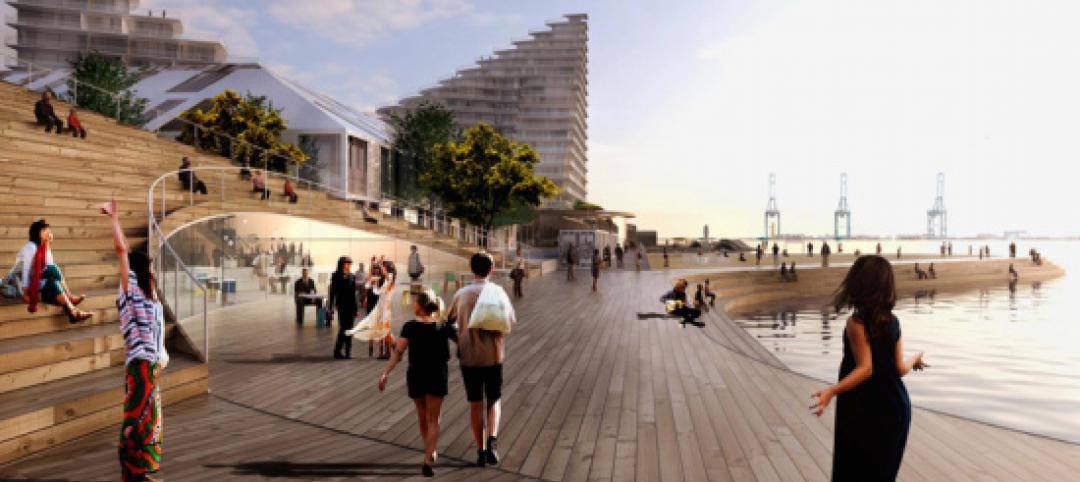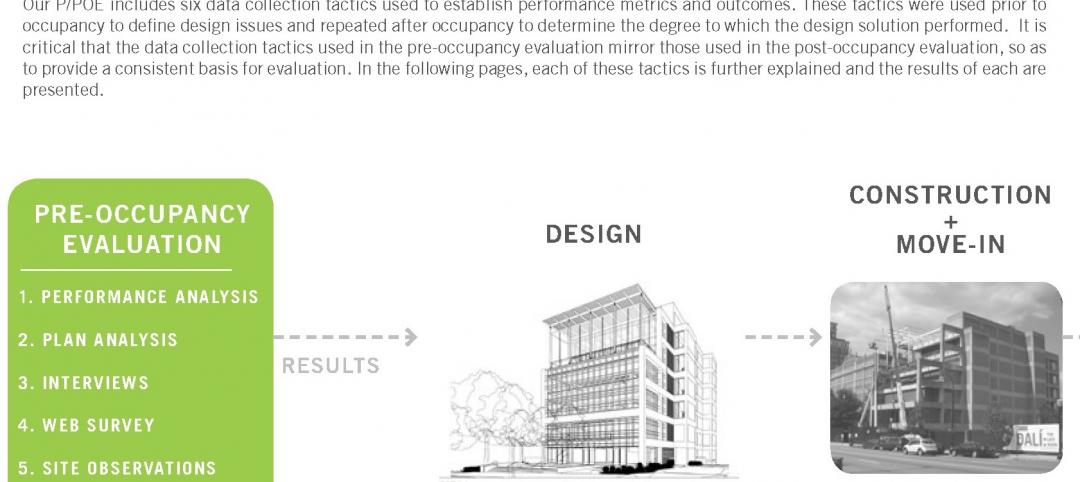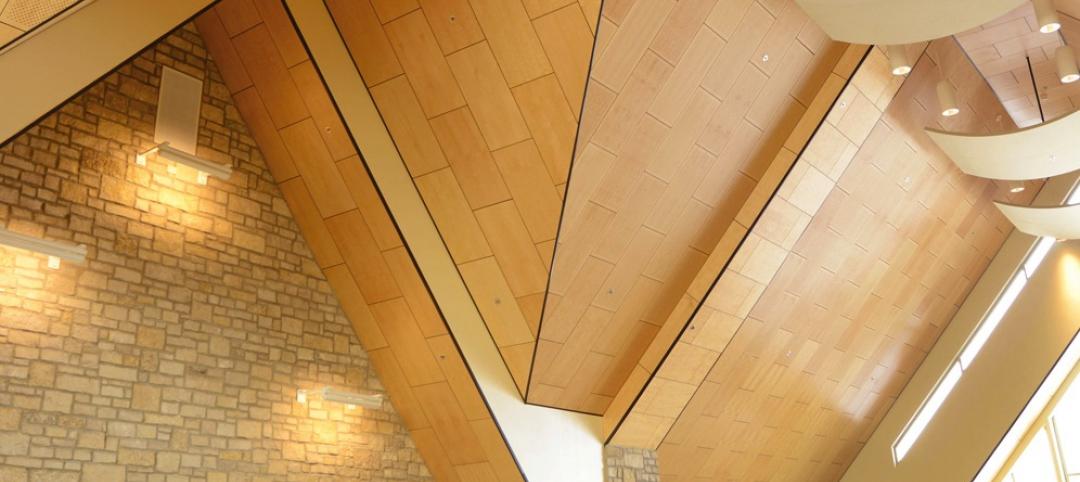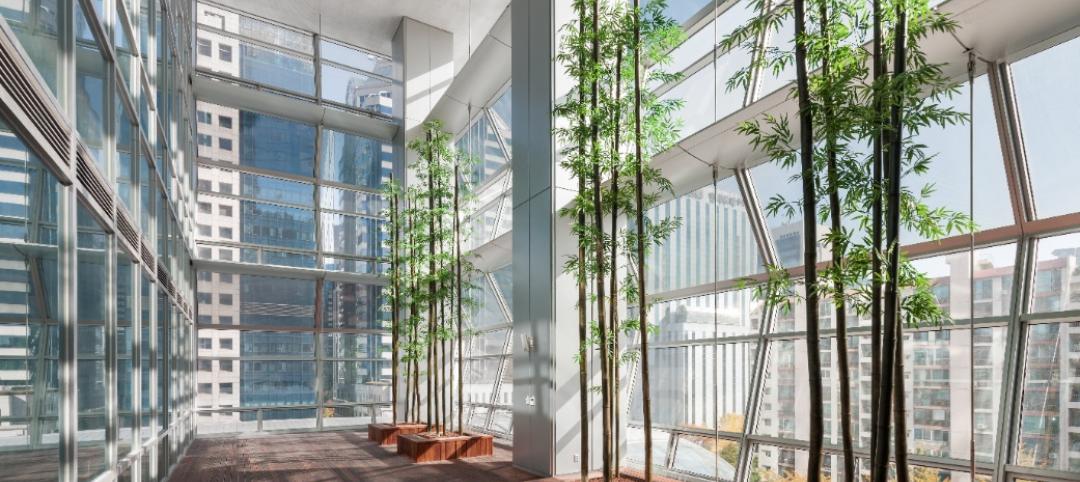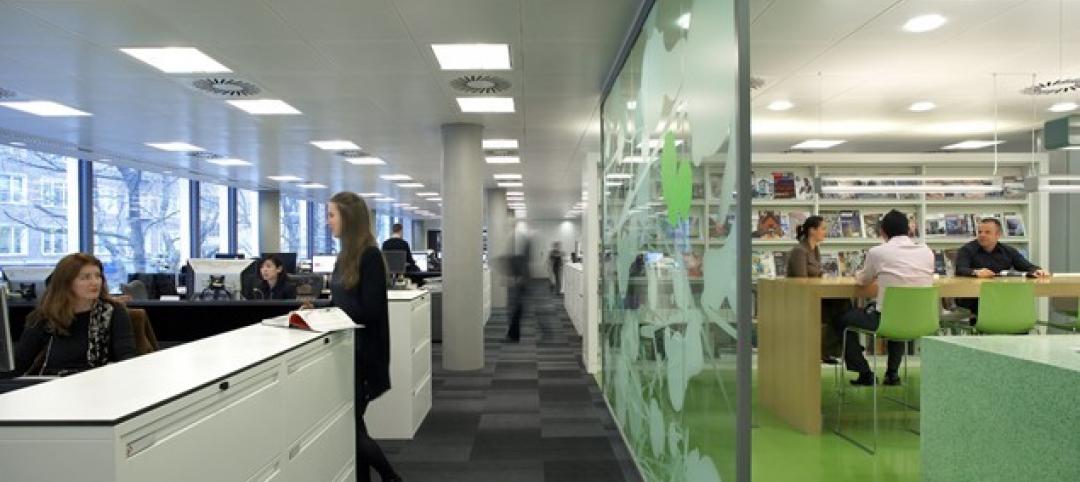U.S. retail and food services sales in July, at $696.4 billion, were up 3.2% over the same month a year ago, according to Census Bureau estimates. Luxury retail, in particular, has been ascending, the beneficary of persistent and post-COVID pent-up demand and robust retail expansion, according to a new Luxury Report 2023 released by Jones Lang Lasalle (JLL) this week.
The United States accounted for the largest share of the global luxury market, 34% of overall sales, and JLL foresees ongoing growth to $83.33 billion in 2028 compared to $69.51 billion in 2022. Last year alone, luxury retailers added more than 650,000 sf of new selling spaces and stores with enhanced ecommerce capabilities, and JLL anticipates further expansion in prime retail corridors, suburban malls, and shopping centers.
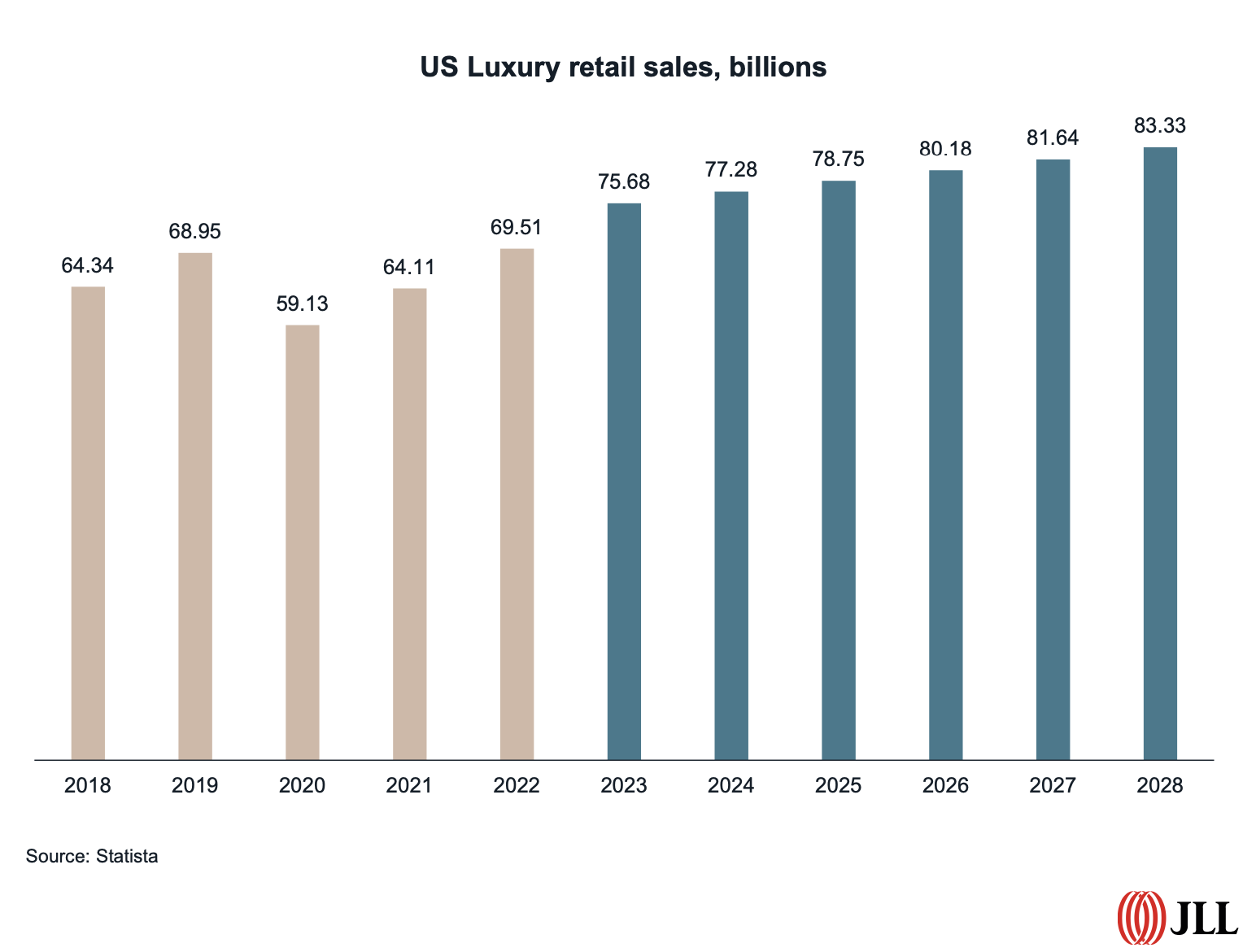
LVMH, the global giant whose brands include Louis Vuitton and Tiffany, increased its net store count last year by 108 to 5,664 units worldwide. Kering Group, which controls brands that include Gucci and Bottega Veneta, added 100 stores, bringing its total to 1,659.
The average new luxury lease size is now greater than 5,000 sf.
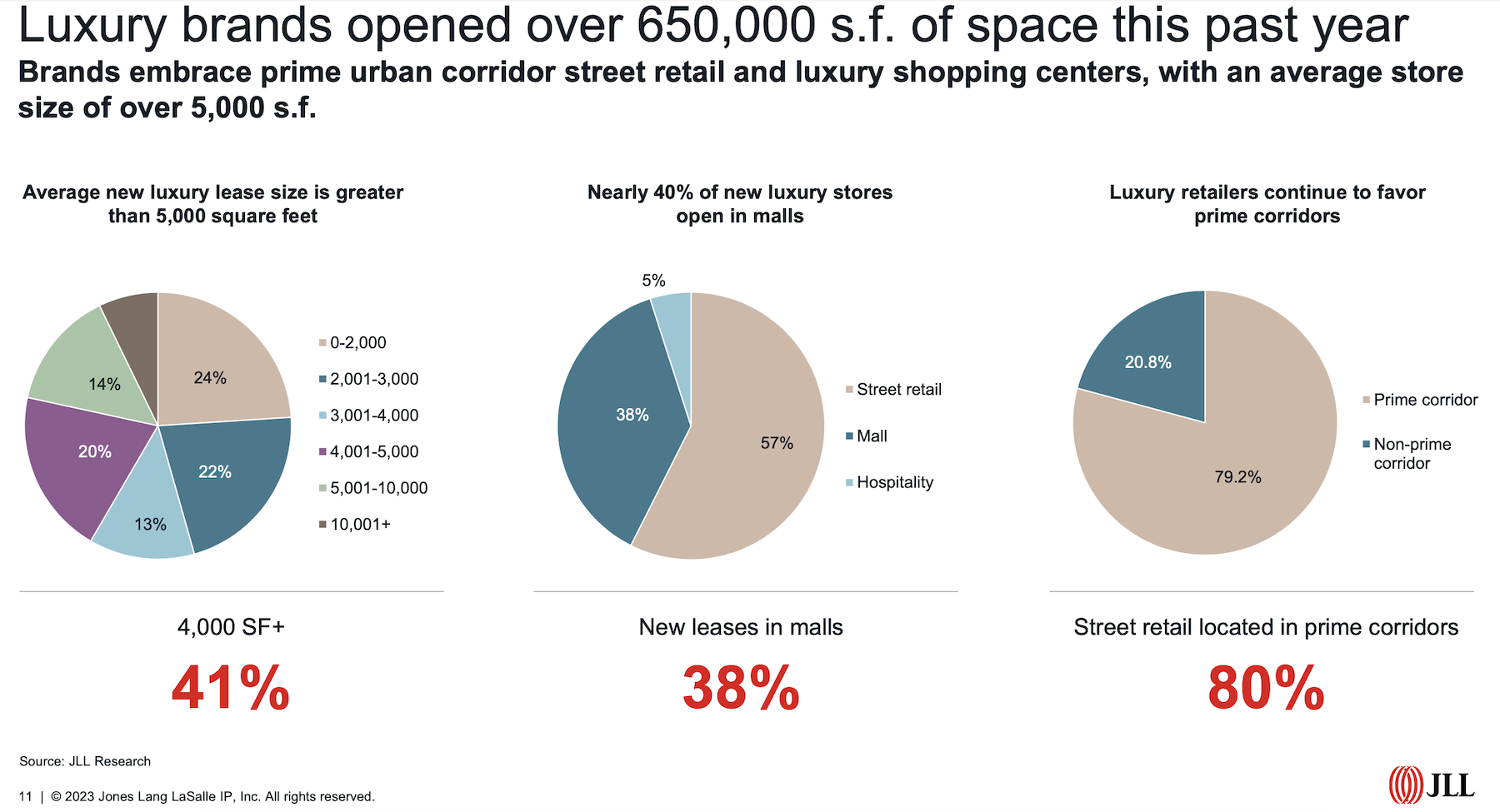
Luxury retail getting more comfortable in the Sunbelt
JLL suggests that the stars are aligned for bricks and mortar luxury retail. The retail sector as a whole continues to report solid fundamentals and low vacancy rates. Ecommerce, as a percentage of total retail sales, appears to have stalled at around 15%. And more than three-quarters of frequent luxury shoppers polled in a recent survey said they plan to visit a luxury store as often as or more frequently than they did last year.
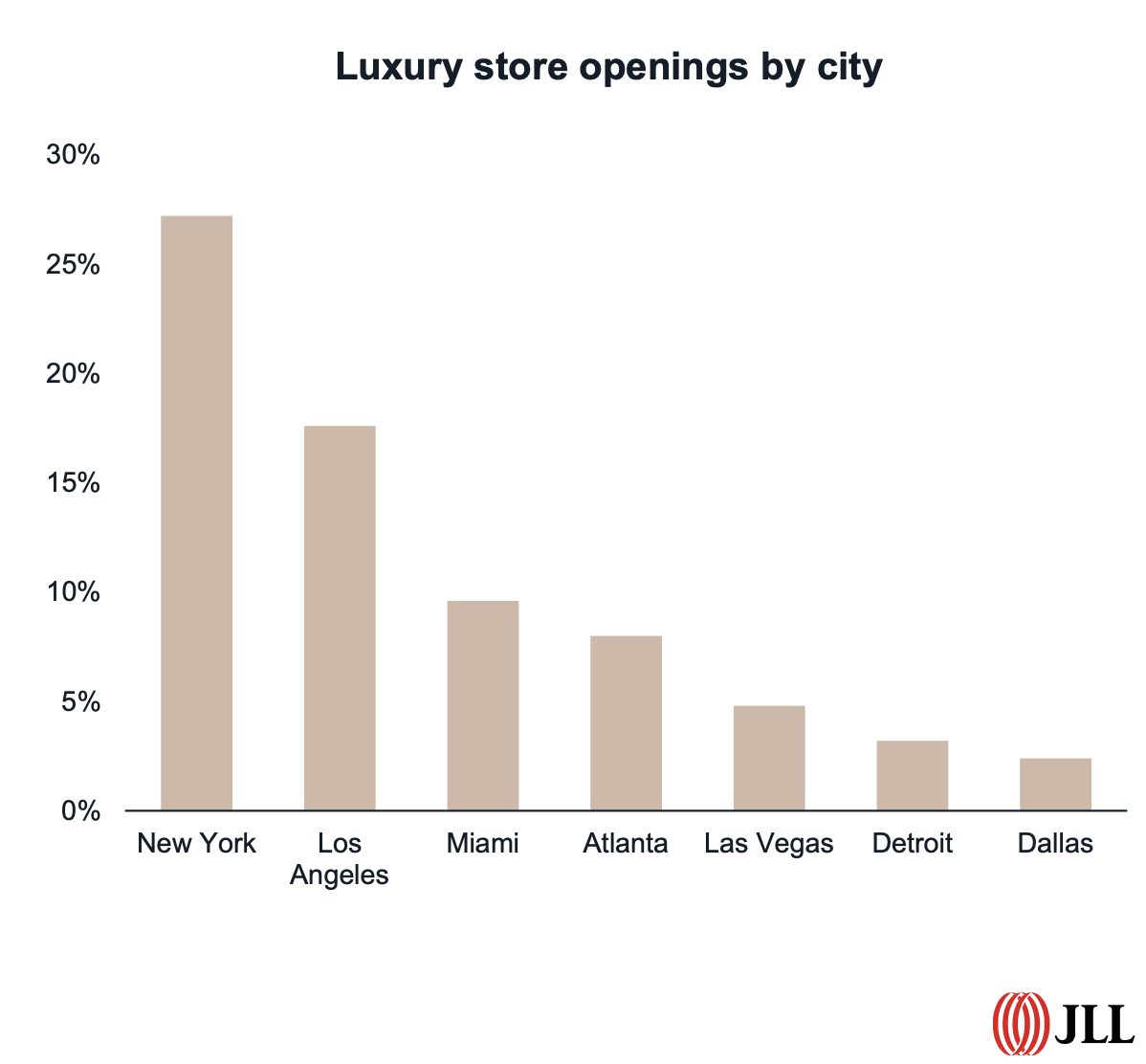
JLL is finding that while New York and California account for over half of all new luxury store openings in the U.S., the Sunbelt is seeing significant expansion in places like Atlanta, Miami, and Las Vegas. Surprisingly as well has been the willingness of luxury brands to open new stores in malls, which accounted for 38% of the space added last year.
A growing number of mall operators now devote entire wings to luxury brands. In Toronto, for example, The Oxford Properties-owned Yorkdale Shopping Centre is repurposing 100,000 sf of space to increase the mall’s luxury composition to 20% in 2025, from 13% today.
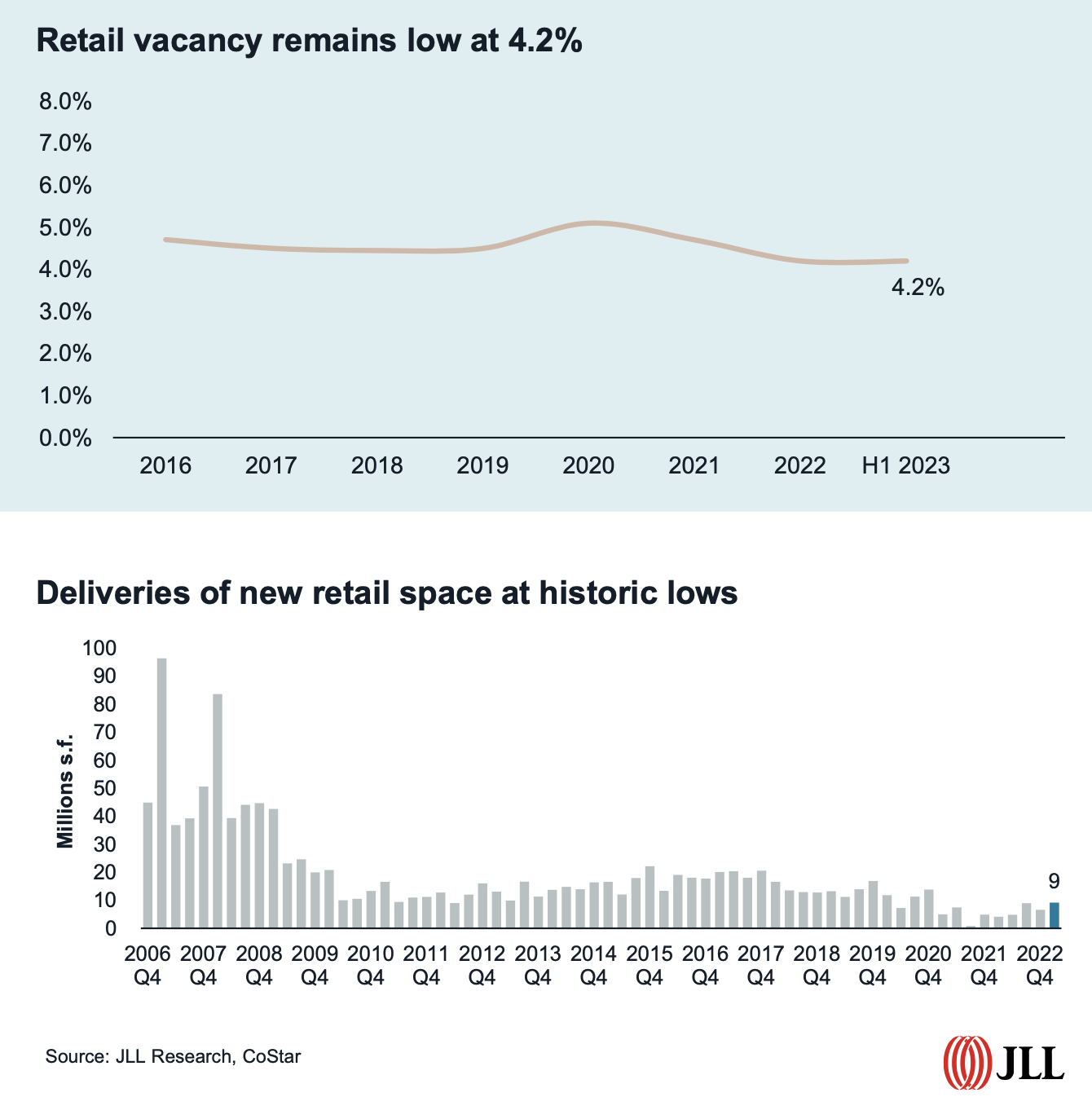
What’s also indisputable has been the preference of luxury retailers toward street retail located in prime corridors, which account for more than 45% of all new luxury leasing activity in the U.S. Prime corridors include New York City’s Times Square, which saw a 29.1% increase in corridor foot traffic between July 2022 and 2023. Boston’s Newberry Street corridor saw an 18% year-over-year increase in foot traffic. The Beverly Hills Triangle accounted for 41% of all luxury store openings in Los Angeles last year, including Chanel’s largest flagship store in the U.S., a 30,000-sf lease.
Quoting CoStar data, JLL notes that cities where rents are rising fastest, like Las Vegas, have also been magnets for luxury dealers.
Secondhand products offer sales alternatives
Last year 12% of new luxury leases were for luxury boutiques, a growing category within this sector, says JLL. Brands in this category include Kith, Elyse Walker, and The Webster.
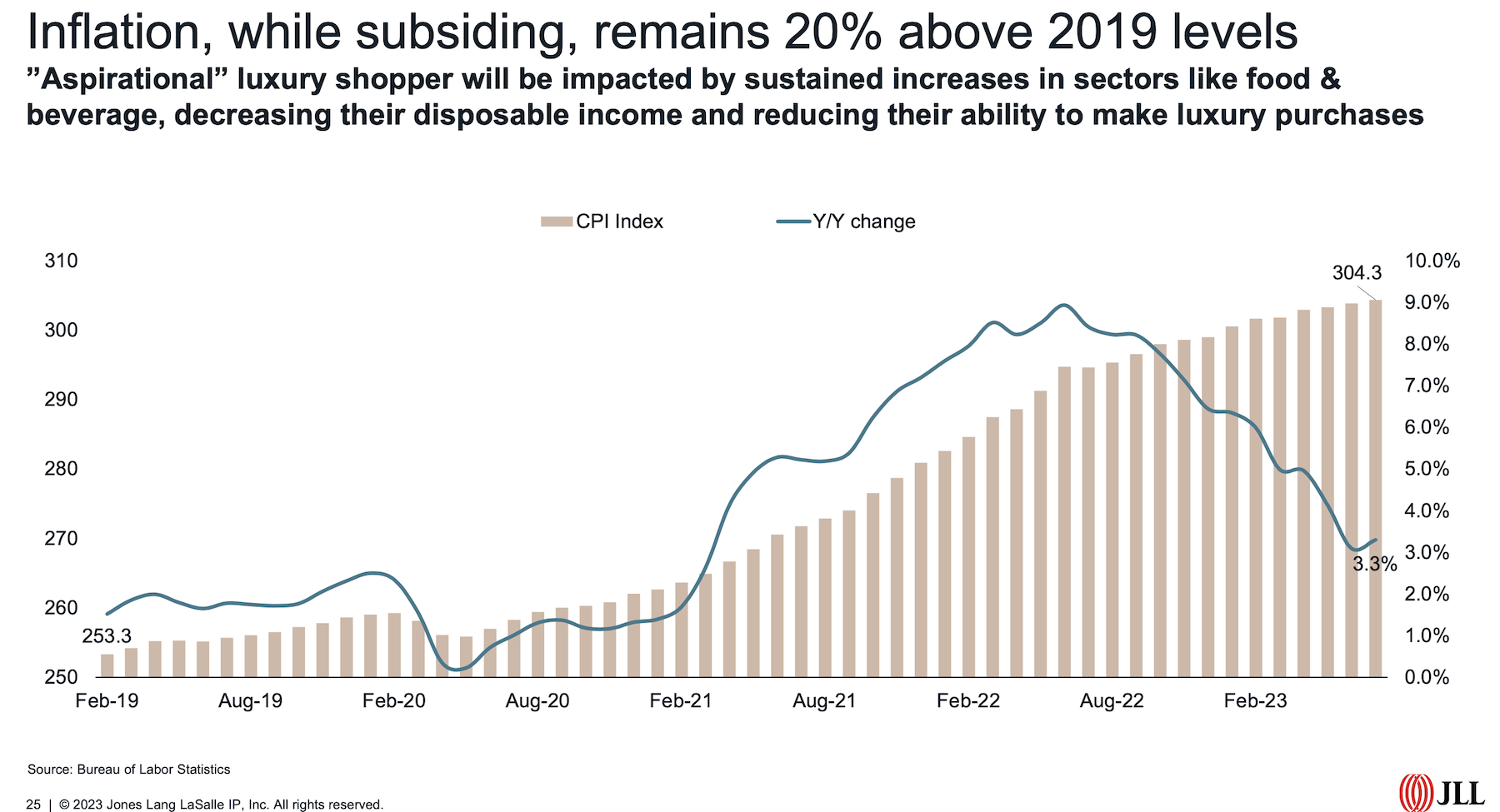
But there are some warning signs that could slow the luxury juggernaut. For one thing, there’s a lack of available retail space in an industry sector with historically low new deliveries. For another, so-called aspirational shoppers are still struggling with inflation at every retail level, not the least being luxury.
JLL reports that the market for secondhand luxury products grew by 28% in 2022. (Earlier this year, eBay launched “Certified by Brand,” which offers new, certified pre-owned, and limited-edition luxury products.) With more consumers concerned about environmental issues, brands that want to remain relevant must demonstrate a willingness to invest in the circular economy.
Related Stories
| Oct 27, 2014
Report estimates 1.2 million people experience LEED-certified retail centers daily
The "LEED In Motion: Retail" report includes USGBC’s conceptualization of the future of retail, emphasizing the economic and social benefit of green building for retailers of all sizes and types.
| Oct 16, 2014
Perkins+Will white paper examines alternatives to flame retardant building materials
The white paper includes a list of 193 flame retardants, including 29 discovered in building and household products, 50 found in the indoor environment, and 33 in human blood, milk, and tissues.
| Oct 15, 2014
Harvard launches ‘design-centric’ center for green buildings and cities
The impetus behind Harvard's Center for Green Buildings and Cities is what the design school’s dean, Mohsen Mostafavi, describes as a “rapidly urbanizing global economy,” in which cities are building new structures “on a massive scale.”
| Oct 12, 2014
AIA 2030 commitment: Five years on, are we any closer to net-zero?
This year marks the fifth anniversary of the American Institute of Architects’ effort to have architecture firms voluntarily pledge net-zero energy design for all their buildings by 2030.
| Sep 25, 2014
Bjarke Ingels headed home for latest project: Aarhus Island
Aarhus Island will be a waterside development in Denmark's second-largest city. The mixed-use development will implement Ingels' signature angled look in its residential towers.
| Sep 24, 2014
Architecture billings see continued strength, led by institutional sector
On the heels of recording its strongest pace of growth since 2007, there continues to be an increasing level of demand for design services signaled in the latest Architecture Billings Index.
| Sep 22, 2014
4 keys to effective post-occupancy evaluations
Perkins+Will's Janice Barnes covers the four steps that designers should take to create POEs that provide design direction and measure design effectiveness.
| Sep 22, 2014
Sound selections: 12 great choices for ceilings and acoustical walls
From metal mesh panels to concealed-suspension ceilings, here's our roundup of the latest acoustical ceiling and wall products.
| Sep 15, 2014
Ranked: Top international AEC firms [2014 Giants 300 Report]
Parsons Brinckerhoff, Gensler, and Jacobs top BD+C's rankings of U.S.-based design and construction firms with the most revenue from international projects, as reported in the 2014 Giants 300 Report.
| Sep 9, 2014
Using Facebook to transform workplace design
As part of our ongoing studies of how building design influences human behavior in today’s social media-driven world, HOK’s workplace strategists had an idea: Leverage the power of social media to collect data about how people feel about their workplaces and the type of spaces they need to succeed.


